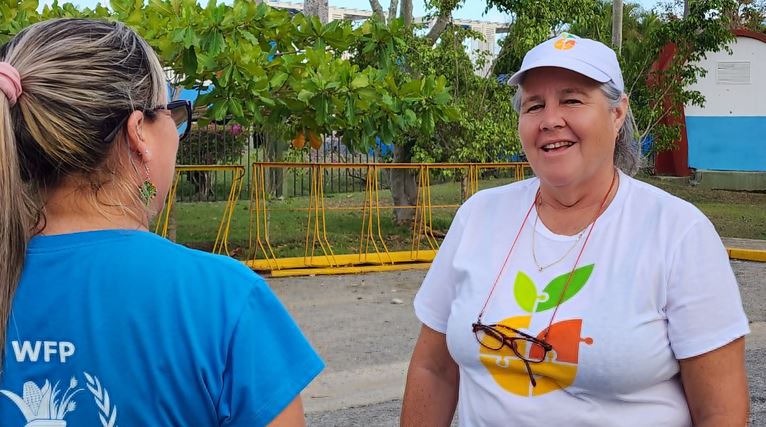The initiative, measured by the World Food Program (WFP) in Cuba and funded by the Korea International Cooperation Agency (Koica), provides work implements to producers so that they can provide fresh products to schools, pregnant women and Family Care Systems (SAF).
Since their implementation in 2020, these municipal protection networks have benefited from the acquisition of vegetables, root vegetables, and grains, which arrive directly from the hands of producers with systematicity and differentiated prices. The beneficiary institutions are five schools, two SAFs and a Maternal Home that have already received refrigeration equipment for food preservation and are waiting for the supply of kitchen utensils to improve the quality and cooking time.
All seven production bases receive work instruments such as motocultors, fumigation equipment, and irrigation systems, which will be installed soon.
Project Coordinator Beatriz Duany told Prensa Latina that until 2024, the initiative will continue to strengthen food distribution, with emphasis on vulnerable people, as well as strengthening the resistance and resilience of crops.
She added local cooperation also focuses on increasing the value chains of grains, a food that is traditionally grown in Jiguaní municipality and has a high protein content.
Duany stressed that another important part of the project is training producers and the staff of social protection network institutions with negotiation plans, information on working with soils and seeds, as well as seminars about food safety and processing.
The principal of the Conrado Benítez primary school, Yadira Castelnaux, commented that more than 1,000 diners benefit from fresh products that arrive weekly from the Wiliam Soler Credit and Services Cooperative (CCS).
These fresh products contribute to improving the diet of students and teachers, as well as varying their weekly menu, she added.
She explained that they have gained in terms of food culture, and are focusing on vocational training with teachers from the school itself and specialists from other educational centers.
The CCS Wilian Soler also supplies the SAF “El Sabor”, which provides lunch and food services to 66 senior citizens.
In the opinion of one of its beneficiaries, 61-year-old Enrique Hernández, the service is quite good and at affordable prices.
In addition, 20 pregnant women at the Esperanza Acosta Maternity Home also benefit from the project.
jg/mem/mpp










